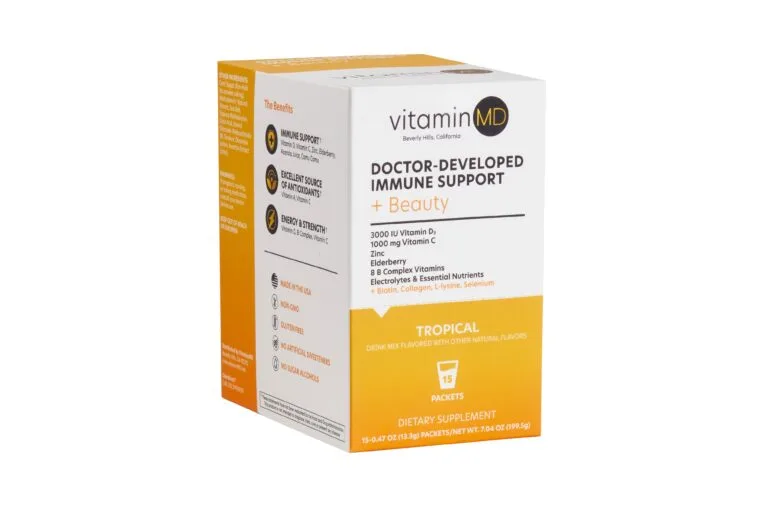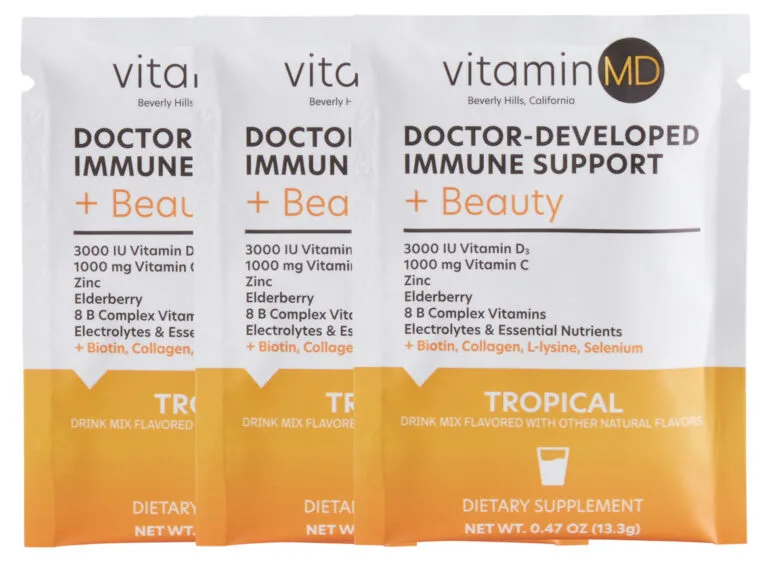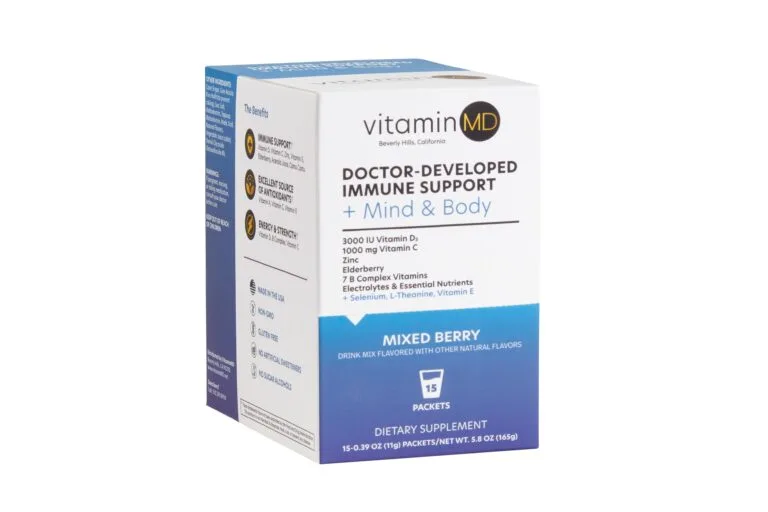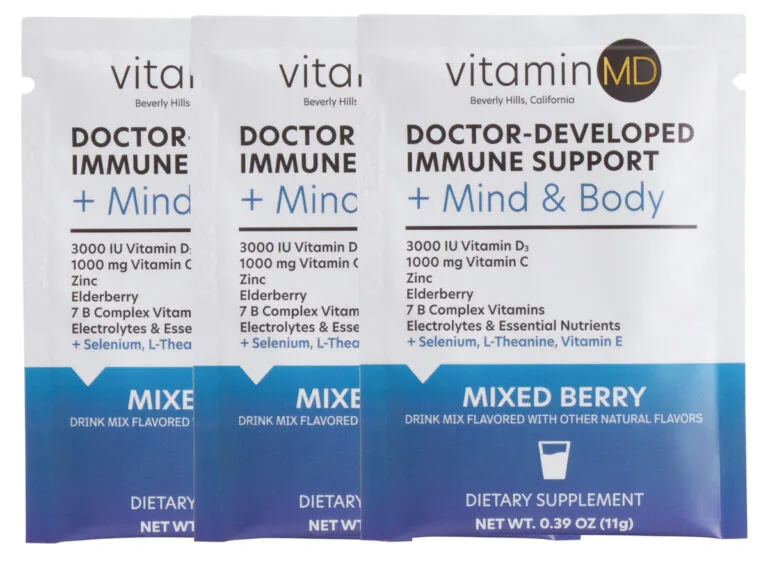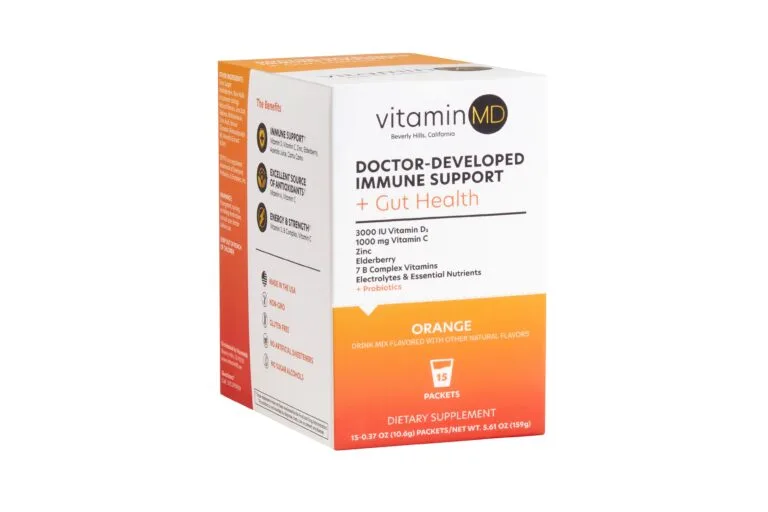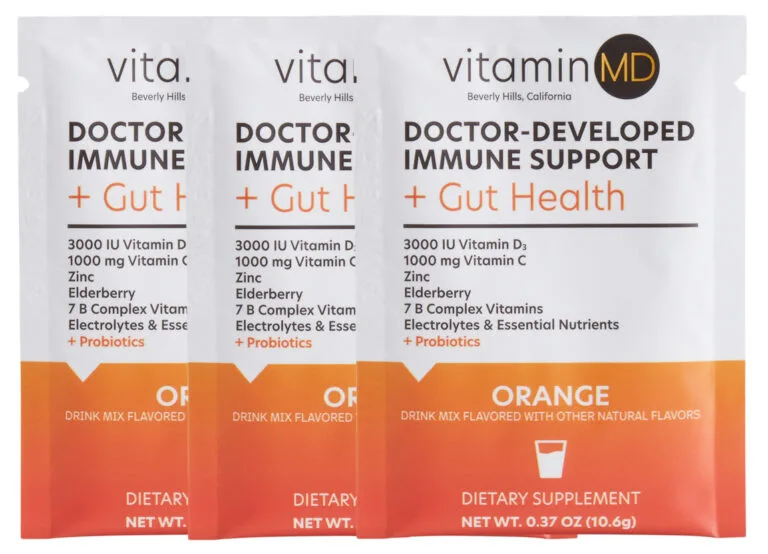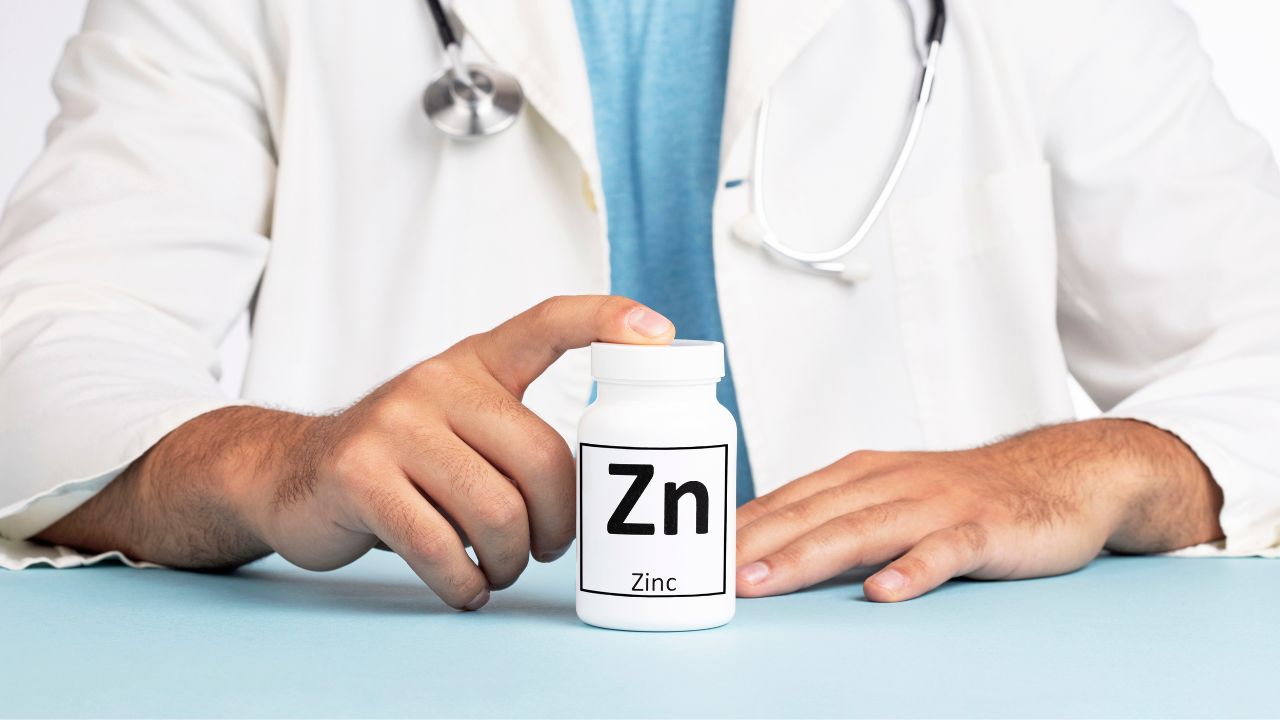
Zinc is a micronutrient that is essential to the human body and a necessary nutrient. Many biological functions, such as cell growth and division, immune system operation, wound healing, and the production of DNA and proteins, depend on it. Meat, shellfish, and whole grains are just a few examples of the many foods that contain zinc. It is also offered as a supplement. We will also discuss the risks associated with zinc deficiency and the potential side effects of zinc supplements.
At VitaminMD, we are dedicated to helping our customers lead healthier lives. We offer a wide variety of products, including zinc supplements. We provide information about the recommended dosage and potential side effects, so you can make an informed decision about whether zinc supplements are right for you. With our products, we hope to help you achieve optimal health and well-being. Shop VitaminMD for your zinc supplement needs today!
What is the best form of zinc to take?
The finest zinc supplement to take will depend on the demands and preferences of the individual and comes in a variety of forms.
Zinc gluconate: This is the most prevalent brand of over-the-counter zinc intake available at your neighborhood drug or health food store. In oral supplements, nasal sprays, and zinc lozenges, it is frequently present as gluconic acid. Zinc gluconate lozenges have been shown to shorten common colds by 28%, according to a meta-analysis. It is essential to numerous biological systems; it functions as an antioxidant and boosts immune function efficiency.
Zinc picolinate: This picolinic acid-produced chelated zinc salt is widely used as oral zinc to treat insufficient zinc levels. A study evaluating the absorption of zinc picolinate, zinc citrate, and zinc gluconate found that none of these forms significantly altered absorption, but zinc picolinate did.
Zinc citrate: Zinc citrate can be taken in pill form and is known for its high bioavailability, meaning that your body can absorb and utilize zinc more efficiently. Zinc citrate supplements can also be taken alongside other vitamins A, vitamin d, vitamin C, and even mineral supplements, making it a great addition to almost any daily health routine. It can also help boost the immune system and provide relief from seasonal cold symptoms. This type of supplemental zinc, which is frequently found in multivitamins, is likewise quickly absorbed by the body.
Zinc oxide: Both orally and topically, zinc oxide is applied. It is well known that it is less soluble when taken orally than zinc gluconate. Zinc oxide is applied topically in sunscreens and creams designed to treat skin conditions such as diaper rash, eczema, and psoriasis.
Zinc Sulfate: Zinc sulfate has been investigated as a possible treatment for age-related macular degeneration (AMD), which is the main cause of vision loss in older persons. Also, excessive doses of zinc sulfate should only be used under the supervision of a healthcare provider because they may induce adverse effects like nausea and digestive problems. Despite this, some individuals may also experience stomach issues due to its influence on calcium absorption within the gastrointestinal tract.
Zinc Acetate: Zinc Acetate is a dietary supplement that can help improve your overall health and well-being. Zinc Acetate is often recommended for those who are zinc deficient. Zinc Acetate works by helping to metabolize proteins, carbohydrates, and fats while also helping to transport vitamins and minerals throughout the body. Furthermore, it promotes healthy skin, nails, and hair, as well as improves cognitive function.
“Enzyme Activated” Zinc: An alternative to elemental zinc or chelated zinc that has just entered the market is “enzyme activated” zinc. This kind of zinc is manufactured from zinc that has been enzyme-activated and fermented with whole foods to increase body absorption. The closest analogy could be raising the amount of zinc through natural food sources.
Before using zinc supplements, it’s crucial to stick to the dosage guidelines and get advice from a healthcare professional.
How much zinc is good for a day?
According to age, sex, and other considerations, including pregnancy and lactation, different daily zinc intakes are advised. According to the National Institutes of Health (NIH), the following zinc intake amounts should be consumed every day:
Infants (0-6 months): 2 mg
Infants (7-12 months): 3 mg
Children (1-3 years): 3 mg
Children (4-8 years): 5 mg
Children (9-13 years): 8 mg
Adolescents (14-18 years): 11 mg for males, 9 mg for females
Adults (19 years and older): 11 mg for males, 8 mg for females
Pregnant women: 11-12 mg
Breastfeeding women: 12-13 mg.
What zinc is best for PCOS?
A hormonal condition known as a polycystic ovarian syndrome (PCOS) affects women who are of reproductive age. Studies have shown that taking excess zinc may help with some of the condition’s symptoms. In PCOS patients who were administered 50 mg of zinc daily for two months, no adverse effects were observed. Optimum forms include zinc glycinate, citrate, and picolinate, as these do not exhibit any side effects or adverse reactions.
Using 50 mg/day of elemental zinc for 8 weeks among PCOS women had beneficial effects on alopecia, hirsutism, and plasma MDA levels; however, it did not affect hormonal profiles, inflammatory cytokines, and other biomarkers of oxidative stress.
What are the benefits of zinc supplements?
There’s a lot of talk about macronutrients—carbohydrates and protein and how much you need—but vital micronutrients, or vitamins and minerals, like zinc, are also important for overall health. We’ll go over the benefits of zinc and everything you need to know about using zinc supplements.
Encourages wound healing
Zinc medications can help those who are weak in this crucial element. Zinc has been proven to stimulate collagen production, which aids in the formation of new tissue and the healing of wounds. It also helps the body fight infection and can shorten the time it takes for an injury to heal. Additionally, zinc contains antioxidant qualities that help protect the body from free radical damage and speed up healing. Before adding any supplement to your diet, take medical advice from your dietitian and follow the specified dosage.
Reduces blood sugar and cholesterol levels
Zinc supplements can help the body create HDL (High-Density Lipoprotein) cholesterol, which is the beneficial sort of cholesterol that protects the heart from disease. Zinc supplements have been found in studies to lower LDL cholesterol, the harmful sort of cholesterol, by up to 10%. Furthermore, zinc can help lower the chance of developing diabetes by enhancing insulin sensitivity and assisting with glucose metabolism.

Enhances the quality of sperm
Zinc promotes the formation of healthy sperm cells as well as the regulation of testosterone production. It also boosts sperm motility and the number of sperm produced. Zinc supplements have been shown in studies to increase sperm quality in infertile males. It can also assist in minimizing oxidative stress and free radical damage, which can contribute to low sperm quality. Furthermore, zinc has been shown to improve sperm morphology or the size and shape of sperm, and thus fertility.
Protects eyesight
Zinc aids in the formation and maintenance of proteins in the crystalline lens of the eyes, as well as the protection of the eye’s delicate tissues from free radicals. Zinc also aids in the absorption of other essential nutrients for the eyes, such as vitamins A, C, and vitamin E. As a result, consuming zinc supplements can help reduce the risk of age-related macular degeneration, cataract development, and other vision disorders. Zinc supplements have also been shown to be effective for patients suffering from dry eye syndrome or other inflammatory disorders.
Age-related macular degeneration (AMD) is a complex eye disease that is the main cause of legal blindness in the elderly in industrialized countries. Usually, two phases of the disease are distinguished: early and late (advanced), although this categorization fails in some cases.
Boost Immune Systems
Zinc is a naturally occurring metal found in a range of foods, but getting enough zinc from diet alone can be difficult. Taking a zinc supplement can help your body get the zinc it needs to maintain your immune system working properly. Zinc aids in the fight against infection by boosting the immune system and protecting cells from harm. It also aids in the formation of white blood cells, which are necessary for combating disease-causing substances.
The diet in the elderly does not provide a sufficient level of nutrients needed to maintain an adequate health status leading to micronutrient deficiencies and impaired immune response with subsequent development of degenerative diseases.
What are the side effects of taking a zinc supplement?
Taking a zinc supplement can be good for your overall health, but you should be aware of any potential adverse effects before doing so. Common adverse effects include nausea, vomiting, stomach cramps, and diarrhea. Taking zinc pills can lead to copper deficiency, especially if taken for more than six months. Other adverse effects include a bitter taste in the mouth, anosmia (loss of smell), and tiredness. It’s also crucial to remember that taking in high doses of zinc can be harmful and lead to copper deficiency anemia.
Using large amounts of denture creams that contain zinc, well beyond what the label recommends, could lead to excessive zinc intake and copper deficiency. This can cause neurological problems, including loss of coordination, numbness, and weakness in the arms, legs, and feet.
References
1. Office of Dietary Supplements – Zinc. Nih.gov. Published 2022. Accessed March 29, 2023. https://ods.od.nih.gov/factsheets/Zinc-Consumer/
2. Effects of Zinc Supplementation on Endocrine Outcomes in Women with Polycystic Ovary Syndrome: a Randomized, Double-Blind, Placebo-Controlled Trial. Biological Trace Element Research. 2015;170(2):271-278. doi:https://doi.org/10.1007/s12011-015-0480-7
3. Blasiak J, Pawlowska E, Chojnacki J, Szczepanska J, Chojnacki C, Kaarniranta K. Zinc and Autophagy in Age-Related Macular Degeneration. International Journal of Molecular Sciences. 2020;21(14):4994. doi:https://doi.org/10.3390/ijms21144994
4. Mocchegiani E, Romeo J, Malavolta M, et al. Zinc: dietary intake and impact of supplementation on immune function in elderly. AGE. 2012;35(3):839-860. doi:https://doi.org/10.1007/s11357-011-9377-3
5. Office of Dietary Supplements – Zinc. Nih.gov. Published 2022. Accessed April 8, 2023. https://ods.od.nih.gov/factsheets/Zinc-Consumer/

